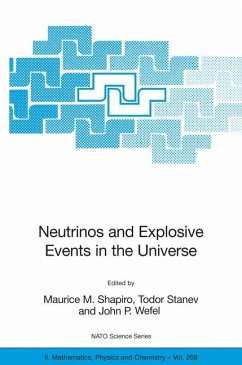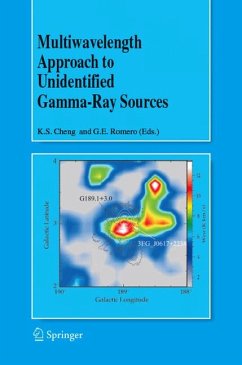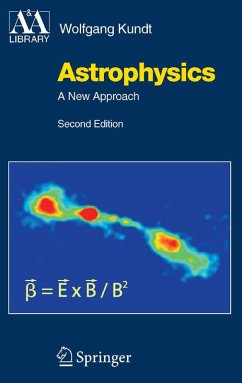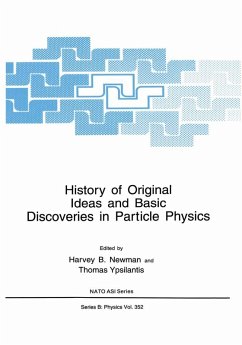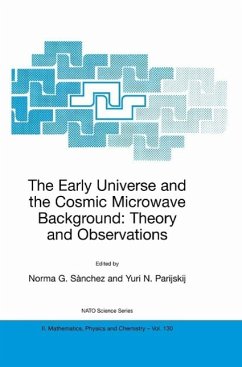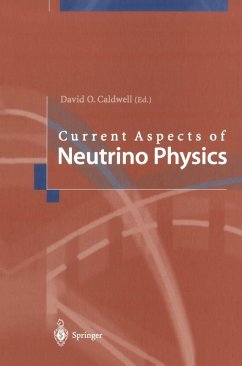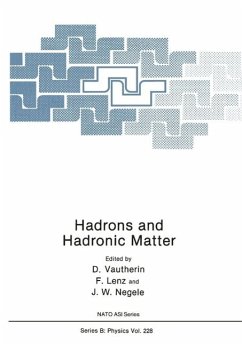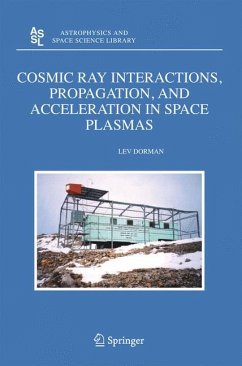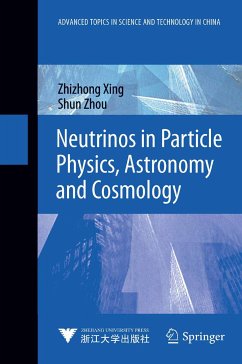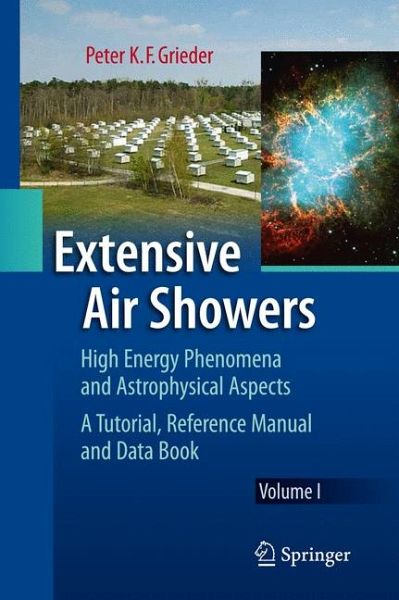
Extensive Air Showers (eBook, PDF)
High Energy Phenomena and Astrophysical Aspects - A Tutorial, Reference Manual and Data Book
Versandkostenfrei!
Sofort per Download lieferbar
296,95 €
inkl. MwSt.
Weitere Ausgaben:

PAYBACK Punkte
148 °P sammeln!
Extensive air showers are a very unique phenomenon. In the more than six decades since their discovery by Auger and collaborators we have learned a lot about these extremely energetic events and gained deep insight into high-energy phenomena, particle physics and astrophysics.In this Tutorial, Reference Manual and Data Book Peter K. F. Grieder provides the reader with a comprehensive view of the phenomenology and facts of the various types of interactions and cascades, theoretical background, experimental methods, data evaluation and interpretation and air shower simulation. He discusses astro...
Extensive air showers are a very unique phenomenon. In the more than six decades since their discovery by Auger and collaborators we have learned a lot about these extremely energetic events and gained deep insight into high-energy phenomena, particle physics and astrophysics.
In this Tutorial, Reference Manual and Data Book Peter K. F. Grieder provides the reader with a comprehensive view of the phenomenology and facts of the various types of interactions and cascades, theoretical background, experimental methods, data evaluation and interpretation and air shower simulation. He discusses astrophysical aspects of the primary radiation and addresses remaining puzzling questions that cannot yet be answered. They remain as a challenge for present and future research in the field.
The book is split into two volumes. Volume I deals mainly with the basic theoretical framework of the processes that determine an air shower and ends with a summary of ways and means to extract information from air shower observations on the primary radiation. It also presents a compilation of data of our current knowledge of the high energy portion of the primary spectrum and composition. Volume II contains mainly compilations of data of experimental and theoretical nature as well as predictions from simulations of individual air shower constituents. Also included are chapters dedicated exclusively to special processes and detection methods. Extensive up-to-date reference lists appear at the end of each chapter.
Researchers and students working in the field of cosmic ray detection and astroparticle physics will appreciate finding this book in their library.
In this Tutorial, Reference Manual and Data Book Peter K. F. Grieder provides the reader with a comprehensive view of the phenomenology and facts of the various types of interactions and cascades, theoretical background, experimental methods, data evaluation and interpretation and air shower simulation. He discusses astrophysical aspects of the primary radiation and addresses remaining puzzling questions that cannot yet be answered. They remain as a challenge for present and future research in the field.
The book is split into two volumes. Volume I deals mainly with the basic theoretical framework of the processes that determine an air shower and ends with a summary of ways and means to extract information from air shower observations on the primary radiation. It also presents a compilation of data of our current knowledge of the high energy portion of the primary spectrum and composition. Volume II contains mainly compilations of data of experimental and theoretical nature as well as predictions from simulations of individual air shower constituents. Also included are chapters dedicated exclusively to special processes and detection methods. Extensive up-to-date reference lists appear at the end of each chapter.
Researchers and students working in the field of cosmic ray detection and astroparticle physics will appreciate finding this book in their library.
Dieser Download kann aus rechtlichen Gründen nur mit Rechnungsadresse in A, B, BG, CY, CZ, D, DK, EW, E, FIN, F, GR, HR, H, IRL, I, LT, L, LR, M, NL, PL, P, R, S, SLO, SK ausgeliefert werden.




